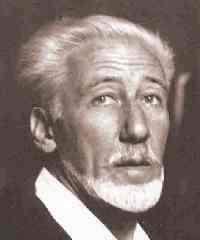Marcus Tullius Cicero Quotes about Age
Marcus Tullius Cicero, Cyrus R. Edmonds (1863). “Three Books of Offices; Or, Moral Duties: Also His Cato Major, an Essay on Old Age; Laelius, an Essay on Friendship; Paradoxes; Scipio's Dream; and Letter to Quintus on the Duties of a Magistrate. Literally Translated, with Notes, Designed to Exhibit a Comparative View of the Opinions of Cicero, and Those of Modern Moralists and Ethical Philosophers”, p.3
Marcus Tullius Cicero, William Melmoth (1820). “Essays on old age and friendship”, p.70
Exercise and temperance can preserve something of our early strength even in old age.
On Old Age X.34
No one is so old that he does not think he could live another year.
"Of Old Age". Book by Marcus Tullius Cicero, book 5, section 15, reported in "Cicero on the Art of Growing Old", book by Herbert N. Couch (1959), p. 21,
If the soul has food for study and learning, nothing is more delightful than an old age of leisure.
Marcus Tullius Cicero (1855). “Cicero's Three books of offices, or moral duties: also his Cato Major, an essay on old age; Lælius, an essay on friendship; Paradoxes; Scipio's dream; and Letter to Quintus on the duties of a magistrate”, p.239
Marcus Tullius Cicero (2014). “Delphi Complete Works of Cicero (Illustrated)”, p.3124, Delphi Classics
Cicero, Marcus Tullius Cicero, William Armistead Falconer (1923). “Cicero in twenty-nine volumes”
Marcus Tullius Cicero, Cyrus R. Edmonds (1863). “Three Books of Offices; Or, Moral Duties: Also His Cato Major, an Essay on Old Age; Laelius, an Essay on Friendship; Paradoxes; Scipio's Dream; and Letter to Quintus on the Duties of a Magistrate. Literally Translated, with Notes, Designed to Exhibit a Comparative View of the Opinions of Cicero, and Those of Modern Moralists and Ethical Philosophers”, p.242
On Old Age XI.35
Marcus Tullius Cicero (1855). “Cicero's Three books of offices, or moral duties: also his Cato Major, an essay on old age; Lælius, an essay on friendship; Paradoxes; Scipio's dream; and Letter to Quintus on the duties of a magistrate”, p.250
Marcus Tullius Cicero, James LOGAN (Chief Justice of the Province of Pennsylvania.) (1750). “Cato Major; Or, a Treatise on Old Age ... With Explanatory Notes from the Roman History. By Mr. Loggan [sic]. To which is Prefixed, the Life of Marcus Tullius Cicero”, p.42
Marcus Tullius Cicero, Cyrus R. Edmonds (1863). “Three Books of Offices; Or, Moral Duties: Also His Cato Major, an Essay on Old Age; Laelius, an Essay on Friendship; Paradoxes; Scipio's Dream; and Letter to Quintus on the Duties of a Magistrate. Literally Translated, with Notes, Designed to Exhibit a Comparative View of the Opinions of Cicero, and Those of Modern Moralists and Ethical Philosophers”, p.242







